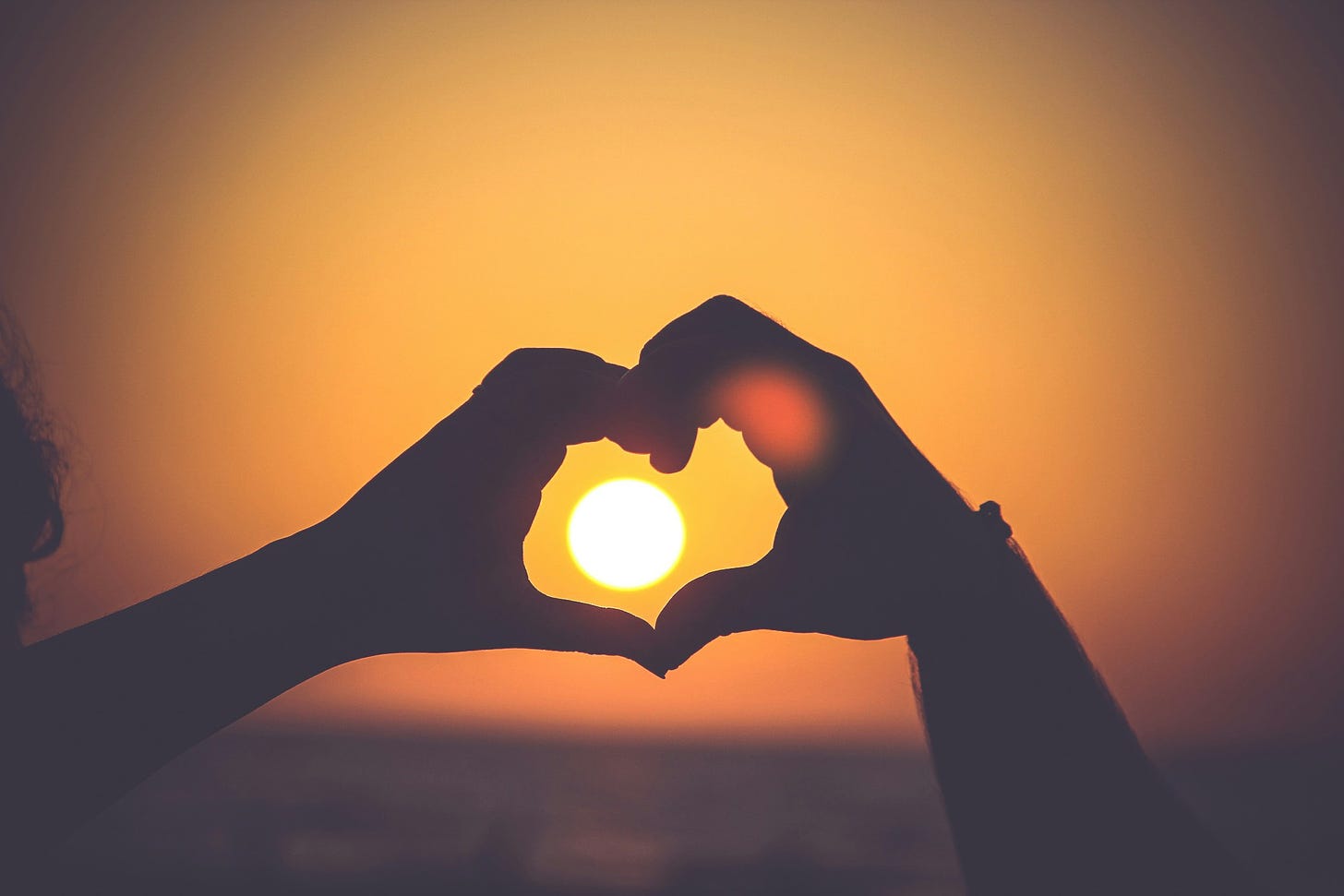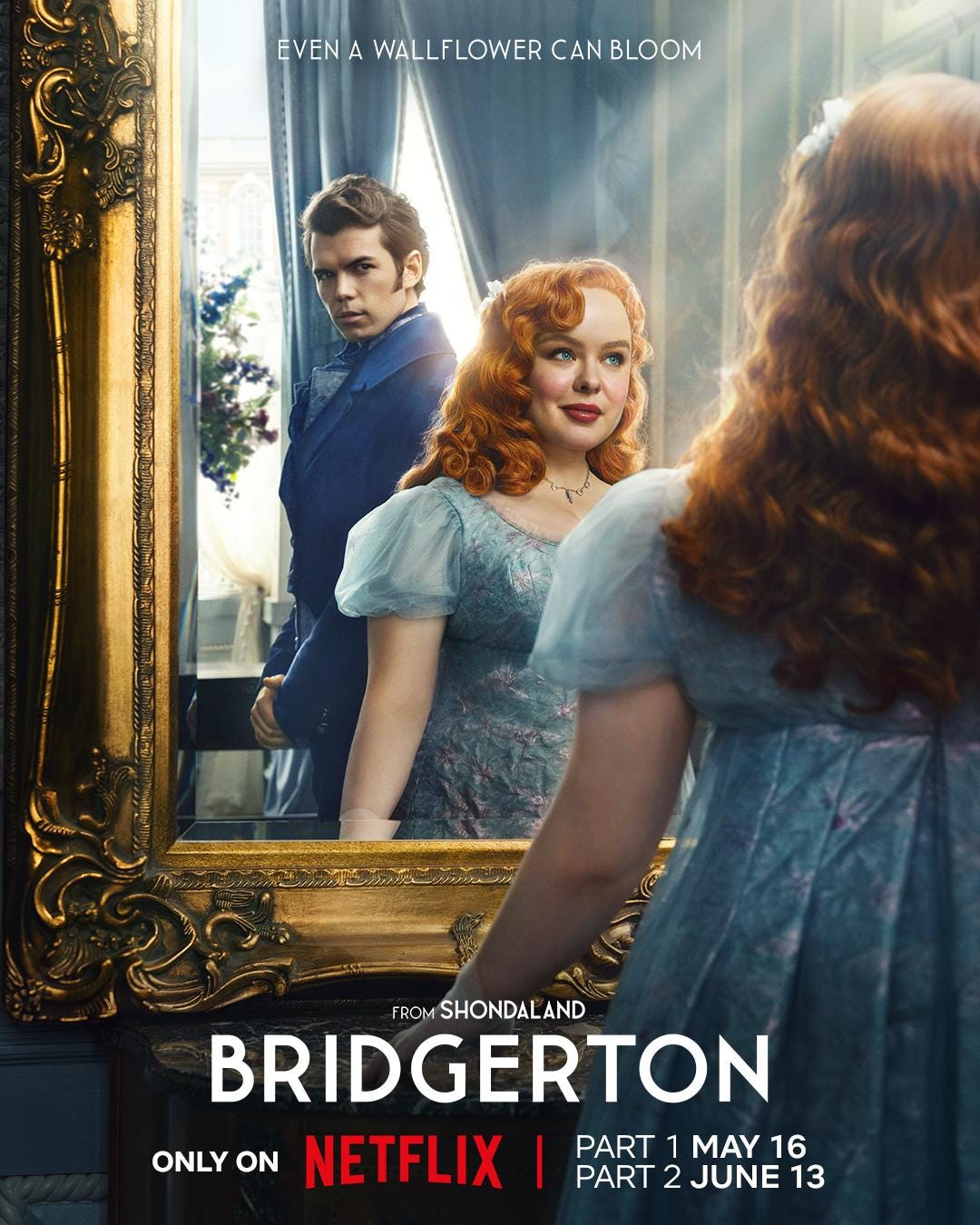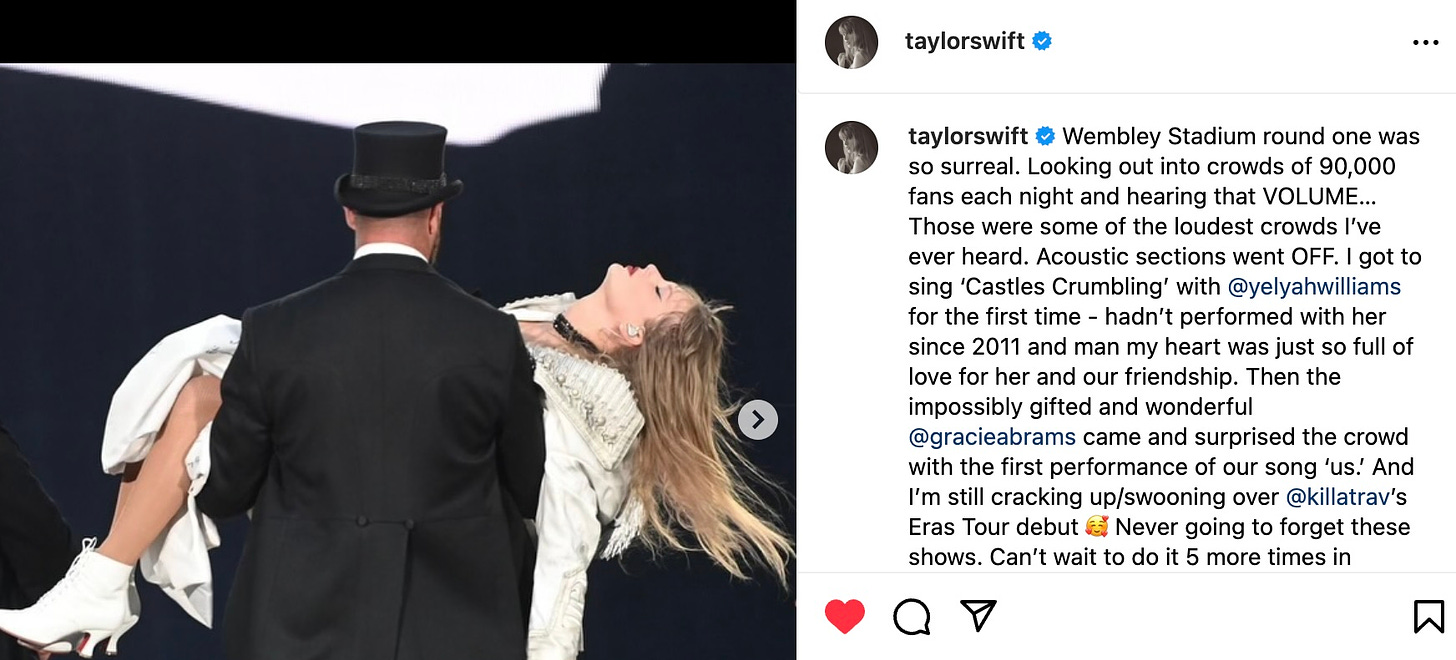
Well hello, and happy Summer! I hope that wherever you are it’s feeling more Summery than it is here in Northumberland!
Though I must say that’s not necessarily a bad thing, not when it’s actually feeling quite cosy - the perfect setting for what I wanted to write about today; a particularly cosy aspect of our stories.
I've talked a lot over the last few years about how we re-kindle and re-weave the stories of those women who have come before us.
That can seem largely historical of course; Lilith was the first woman, existing thousands of years before any of us were born, and even the more modern Greek stories are still ancient, having been told for centuries or more.
But I don’t tell those stories to re-write the past. I tell them because I firmly believe re-centring these women in their own stories can help us to recentre ourselves not only in our own stories but in our lives and the wider world. And those are things I’m passionate about.
This Summer that seems to be playing out on a big stage too, and not just with any story but with my favourite kind of narrative: Romance.
Re-claiming Romance
I've always loved a romance story. From sneakily reading my mum’s Mills and Boon books, to Nora Roberts’ early romantasy series that I re-read at least once a year (the Cousins O’Dwyer trilogy is my favourite), and the romantic subplots that always capture my attention in anything else I read, it has always been my favourite genre.
For a long time, I felt ashamed of that; as though romance novels weren’t “worthy” books to read or recommend. Until I realised that was yet another symptom of internalised misogyny.
After all, romance is are often favoured by women. These books about emotion, so of course, they're considered much sillier than, I don’t know, blowing things up and killing people. Eye roll.
So recently, I've really started to lean further into romance.
As a novelist, what I really want to write is romance (Although yes, the idea of turning this Substack into a regular post of empowering but spicy fiction does still cross my mind from time to time. The Divine Feminist’s answer to 50 Shades anyone?!).
Why? Because I think it can be not only joyful and comforting but empowering; that it can reflect back themes and possibilities it’s long past time for us to see in ourselves and in the world.
And that’s not just my imagination. Because this Summer it seems as though we’re already seeing a bit of that empowerment in the world.
2024: The Summer of Romance
I say that because, over the past couple of months, there are two romance stories that have absolutely captivated me: those belonging to Bridgerton and Taylor Swift.
Before I go any further allow me to say that yes, I am very aware that both of the women at the centre of those stories are white, blonde and Western, and that their relationships are heteronormative.
I know that there are other narratives out there that are just as empowering; perhaps even more so! For me personally, these are the ones that have caught my attention, but please do let me know in the comments if there are others that I should be looking at that are outside my own limited vision.
When it comes to Bridgerton, I was a late bloomer.
I tried to watch the first series back in 2020 and just couldn’t get away with it. I didn’t feel any chemistry between the leads and found the Duke’s gravelly voice to be more distracting than sexy.
But after so many people went on and on… and on and on about it to me, this year, I finally decided to give it another go. And then the obsession hit.
I watched the first two series plus the spin off, Queen Charlotte (by far the best!) in two weeks, then started on the books. So when season three of the TV show arrived this Summer, you can bet your bottom dollar that I was there and ready to watch at 8 am!
And I don't mind telling you that I sobbed, not once but a number of times, and rarely in the places you might expect.
And for the record, if you haven't seen Bridgerton season three yet, scroll down until you get to the “The romantic heroine era” heading because this is likely to get spoiler-y.
Bridgerton as empowerment though?!

I first stopped at the carriage scene.
Yes. While everybody else was getting hot under the collar about Colin Bridgerton’s fingers, I was crying.
Why? Because I thought it was so beautiful to see a sex scene on television between two friends; two people who giggled at the end of their hot and heavy make out session. Isn't that one of the most beautiful kinds of love?
I sobbed in the second part too; first during the sex seen in front of the mirror, you know the one. Why? Because for the first time in my life I saw breasts like mine (perfect breasts, as actress Nicola Coughlan later declared) and a back with bumps on it portrayed as sexy on television.
Because I watched a romantic hero look at a woman who was short and curvy as though she’d hung the fucking Moon and wondered how differently my life might have been if the first romantic movies and sex scenes I’d ever watched had featured heavy boobs and back fat?
I sobbed when Francesca and John got together (yes, I know what happens in the book, and no I am not upset about Michaela!) and we were treated to a romance story that wasn’t fireworks and passion but softness and understanding. Where the gestures were small, thoughtful and personal rather than grand and overwhelming.
Then I sobbed a final time when Colin made his declaration of love to Penelope. Was it a “you are the bane of my existence and the object of all my desires”? No, it was entirely different, and that’s what made it beautiful.
I love love, love, love the fact that here we are on international television, watching a man declare that a woman who is successful in her own right inspires rather than intimidates him. That it makes him want to support her, while also encouraging him to live his dreams just as beautiful. And oh my gods that made me sob.
It made me think of the time an ex told me that if he wanted to be successful I’d have to put my dreams on hold; of another who was intimidated that I earned more money than he did; and of the date I went on with a guy who was so over-awed by the smallest of achievements I’d shared with him that I felt scared to tell him any of my real dreams.
And again, I wondered how my 20s and 30s might have been if I'd seen a successful woman as a romance heroine; and a hero opposite her who didn’t try to make her smaller, but simply saw her as inspiration that together they could grow even further. If a love like that had been modelled as normal in the media.
In the weeks since that episode aired, I’ve had to steer clear of social media chat about it. Not only because of the Michael/ Michaela thing (although let me say again that I loved Michael in the books, and also can’t wait to see what happens with Michaela in the show), but because of the way people were calling the show out as “ridiculous” and “fantastical”.
Now let me be clear, I know Shondaland’s interpretation of Regency Britain isn’t historically accurate. I also don’t for one single second expect a rich and handsome man in a dapper suit to sweep me up in his carriage and have me panting before he whisks me off to meet his family and get married. Also Benedict Bridgerton, if you’re reading this I’m more than willing!
But what really made me sigh wasn’t the gowns, the cast or even the music (although I did love the orchestra version of Sia). No, it was the moments that made me sob.
It was the reminder that friendship and romance can go hand in hand.
The vision of a romance that is gentle and personal.
The message that a real woman’s body is desirable.
And the idea that a real man can and will be inspired by a successful, ambitious woman.
Are any of those things fantastical? No. In fact I’d argue that they are some of the baseline things we should be teaching ourselves and the generations to come when it comes to seeking romantic love in the real world.
But fortunately, those generations to come have also been seeing a clear example of that right in front of their eyes lately.
The romantic heroine era

Like so much of the rest of the Western world, I’ve been hooked on the Eras tour and remain devastated that I didn’t get tickets.
But of course I’ve been keeping track of Taylor Swift’s journey around the world and the impact she’s made with that. No, not just in terms of the community support she’s given – although yes, I am also overawed by the amount of money she’s given to food banks across the UK but also energetically.
In recent weeks I’ve watched video after video of tens of thousands of people – predominantly young women – scream “who’s afraid of little old me? Well you should be” and found my whole body buzzing at the thought. That’s some serious re-weaving of ALL of their HerStories!
The romance though came a couple of weeks ago, when Taylor’s boyfriend Travis Kelce joined her onstage.
If you’re anything like me you’ve watched their romance play out; seen the clip of him talking about trying to meet her at a concert to pass his phone number over on one of her famous friendship bracelets, watched her excitement at celebrating his SuperBowl win and wondered if this could really be the real thing.
Maybe you’ve also seen the many videos of Travis dancing and singing in the stands at Taylor’s concerts looking like possibly the proudest man in the world and felt that sense of warmth in your heart that finally someone was looking at her with the same kind of adoration we’d heard her allude to in her songs.
Then Sunday night at Wembley came.
Taylor performed her song, The Smallest Man Who Ever Lived and, along with two of her dancers, Travis emerged on the stage fully suited and booted to scoop her up from the floor and carry her back to centre stage.
Once there he joined in with the schtick-like routine of getting an exhausted woman ready to go back to perform. He held her up when she seemed to wobble, he used an actual blusher brush to – apparently – put colour back into her cheeks so she could face the world. And then, as he disappeared from the stage ready to return to the crowd and watch his partner do what she does best, he gave her the kind of look that romance novels are written about.
Reader, I don’t want to think about how many versions of that clip I’ve watched, or about how long I spent watching the day after the concert. It was a lot.
But you know what? I’m not even ashamed. Because something about this feels paradigm-shifting, not only for Taylor Swift but for me too. And perhaps more broadly too.
Because here is a woman who has, for so long, been associated with and mocked for heartbreak and men who we’re told found her to be “too much”, being treated like an absolute Goddess by her partner.
Here is a woman who appears to be at the top of her game (although we all know she’ll only take that as a challenge to go further) being met and loved by a man who is also riding high on the wave of his own success in a pairing that seems to be encouraging them both to rise even higher.
And here, in front of a live audience of tens of thousands, and a global audience of so many more, is a vivid depiction of a man who was willing to pick that woman up from what seems to have been the worst time of her life, stand by her while she finds her feet, and then wave proudly from her side while she goes on to shine.
Does any of that sound fantastical to you (well, other than the live audience of 10,000s!)?
No.
To me it sounds like a romantic relationship rooted in mutual respect and support. Which is exactly the kind of relationships of all kinds that we should be engaged in.
The new romance narrative.
So let me be clear about the romance novels that I’m writing, about the romance narrative that I’m calling into my own life, and about the romance principles that I think we should all start to see as the norm in our lives and our world:
They don’t have to be fireworks, or love at first sight, or any of those other tropes; they are valid because they are ours.
They feature bodies that are desirable because we are desirable; no ifs, buts, tucks and plumps required.
They can be soft and quiet, personal and awkward rather than big, exciting and dramatic; what we want rather than what we think we must have.
They need never dull our shine, only polish it – and the shine of another – further.
They can see us through our broken and our bountiful, and never require us to hide any parts of ourselves in order to be loved.
And most of all, they can be ours. Because this, everything I’ve written about here, is normal. And yes I know there are a lot of bad guys - and girls - out there. But there are good ones too as many of you reading this will know firsthand.
So whether you’re partnered or not, I invite you to lean into these new romance narratives for yourself. To see how they can hold you, empower you, and support you to find a deeper kind of romantic love – for yourself and for others around you.
And amongst that, let me end with a little thought that is percolating in my cauldron as I move out into the rest of this Summer: What if we all stopped looking for that romance narrative outside of ourselves, and claimed it within ourselves too.
What if we took a step on from befriending ourselves, on even from loving ourselves, and made the conscious decision to romance ourselves too? Because gods know it’s what we deserve.
Before I go…
Just before I go, let me share with you three things that are happening in my world that you may be interested in:
The next part of my first novel, Lilith: The Fallen Woman is now up on Wattpad. Read it here, and know there is romance coming in this one - I promise!
Fancy a weekend in the sacred lands of Avalon where we’ll remember the sacredness of our own bodies and of Gaia (and perhaps romance them both)? Check out the Re-Awakening Gaia workshop I’m running with my wonderful Project Earthwork sisters this September.
If you’ve ever contemplated a Soul Integration Reading from me but have thought it seemed a little much, check out the new audio-only readings which went live this week.



